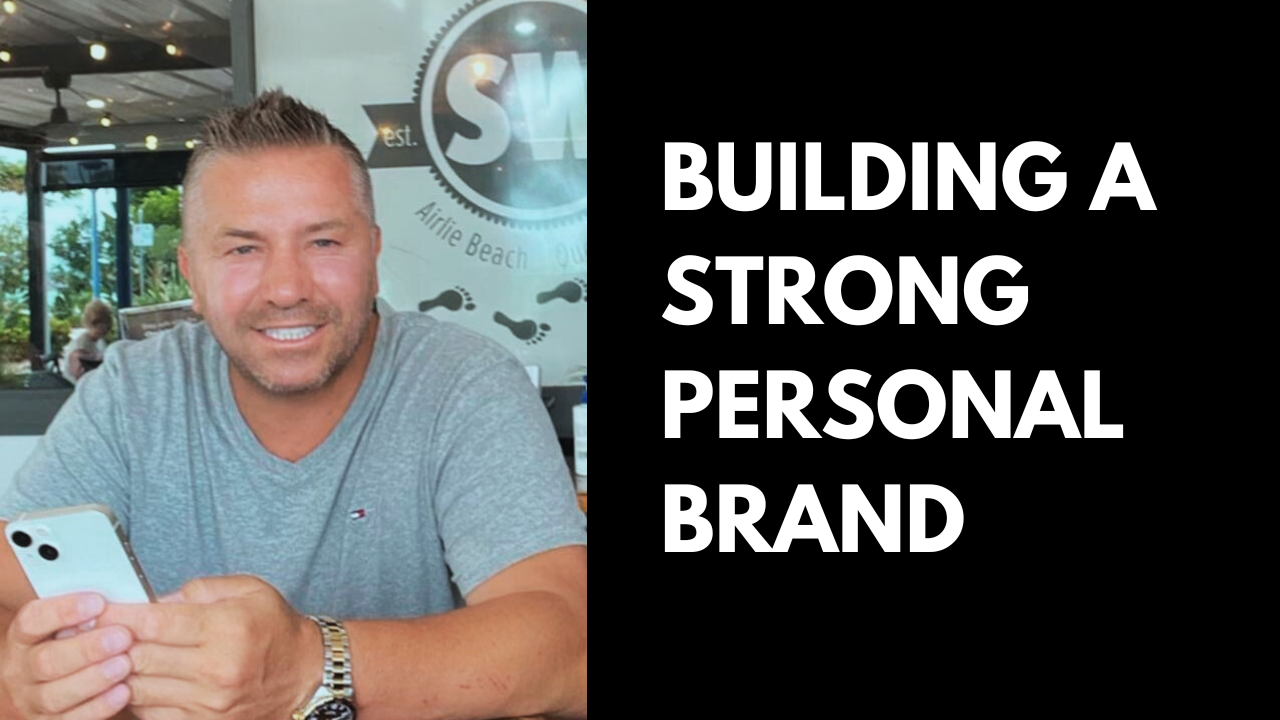In today’s digital age, building a strong personal brand has become essential for both personal and professional success. Your personal brand is how you present yourself to the world and how others perceive you. It encompasses your values, skills, and unique qualities that differentiate you from others. Developing a compelling personal brand can open doors to new opportunities, build credibility, and create lasting impressions. This blog will explore the importance of a personal brand, the benefits it offers, and actionable steps to create and strengthen your personal brand.
Understanding Personal Branding

1. Definition and Importance: Personal branding is the practice of marketing yourself and your career as a brand. It involves defining who you are, what you stand for, and what makes you unique. In a world where first impressions often happen online, a strong personal brand helps you stand out in a crowded marketplace and creates a consistent image that people recognize and trust.
2. The Evolution of Personal Branding: Historically, branding was reserved for businesses, but the rise of social media and digital platforms has shifted the focus to individuals. Today, everyone from entrepreneurs to job seekers to influencers can benefit from a well-crafted personal brand. It’s about creating a narrative that showcases your strengths and aligns with your career goals.
Benefits of Building a Strong Personal Brand
1. Enhanced Professional Opportunities: A strong personal brand can lead to new career opportunities, including job offers, partnerships, and business ventures. When you establish yourself as an expert in your field, people are more likely to seek you out for your knowledge and skills.
2. Increased Visibility and Recognition: Effective personal branding increases your visibility and recognition within your industry. By consistently sharing valuable content and engaging with your audience, you build a presence that people remember. This recognition can lead to speaking engagements, media interviews, and other high-profile opportunities.
3. Credibility and Trust: A well-developed personal brand builds credibility and trust with your audience. When people see that you are knowledgeable, reliable, and authentic, they are more likely to trust your opinions and recommendations. This trust is crucial for building long-term relationships with clients, colleagues, and followers.
4. Personal and Professional Growth: The process of building a personal brand requires self-reflection and continuous improvement. It encourages you to identify your strengths, set goals, and seek out opportunities for growth. This ongoing development can lead to greater self-awareness and personal fulfillment.
Steps to Building a Strong Personal Brand
1. Define Your Brand Identity: The first step in building a personal brand is defining your brand identity. This involves understanding your values, passions, and strengths. Consider what you want to be known for and how you want to be perceived by others. Develop a clear and concise personal brand statement that reflects who you are and what you offer.
2. Identify Your Target Audience: Identify the audience you want to reach with your personal brand. This could be potential employers, clients, industry peers, or a broader online community. Understanding your target audience helps you tailor your messaging and content to meet their needs and interests.
3. Create a Consistent Online Presence: In today’s digital world, your online presence is a key component of your personal brand. Ensure that your social media profiles, website, and any other online platforms are consistent and reflect your brand identity. Use professional photos, write a compelling bio, and regularly update your profiles with relevant content.
4. Develop and Share Valuable Content: Creating and sharing valuable content is essential for building your personal brand. This can include blog posts, articles, videos, podcasts, and social media updates. Focus on topics that showcase your expertise and provide value to your audience. Consistency is key, so establish a regular posting schedule.
5. Network and Engage with Others: Networking is a crucial part of building a personal brand. Engage with others in your industry by attending events, participating in online forums, and joining professional groups. Comment on and share content from others, and collaborate on projects when possible. Building relationships with influencers and thought leaders can also enhance your visibility.
6. Seek Feedback and Continuously Improve: Building a personal brand is an ongoing process that requires regular evaluation and improvement. Seek feedback from mentors, peers, and your audience to understand how your brand is perceived. Use this feedback to make adjustments and continue evolving your brand.
7. Be Authentic and Transparent: Authenticity is a cornerstone of a strong personal brand. Be genuine and transparent in your interactions and content. Share your successes as well as your challenges, and show your personality. Authenticity builds trust and helps you connect with your audience on a deeper level.
Case Studies and Success Stories

1. Gary Vaynerchuk: Gary Vaynerchuk, a well-known entrepreneur and social media influencer, has built a powerful personal brand by sharing his journey, insights, and advice on entrepreneurship and marketing. His authenticity, consistent content, and engagement with his audience have made him a trusted voice in the business world.
2. Oprah Winfrey: Oprah Winfrey’s personal brand is built on empathy, authenticity, and empowerment. She has created a strong connection with her audience by being genuine and sharing her personal experiences. Her brand extends beyond her television career to include philanthropy, publishing, and more.
3. Elon Musk: Elon Musk, the CEO of Tesla and SpaceX, has developed a personal brand centered around innovation and visionary thinking. His willingness to take risks, push boundaries, and communicate openly about his goals and challenges has made him a prominent figure in the tech and business communities.
Conclusion
Building a strong personal brand is a strategic and ongoing process that can significantly impact your personal and professional life. By defining your brand identity, creating a consistent online presence, sharing valuable content, and engaging with your audience, you can establish yourself as a trusted and influential figure in your field.
The benefits of a strong personal brand are manifold, including enhanced career opportunities, increased visibility, and greater credibility. As the digital landscape continues to evolve, the importance of personal branding will only grow, making it a crucial skill for anyone looking to succeed in today’s competitive environment.
Remember, your personal brand is a reflection of who you are and what you stand for. Be authentic, stay true to your values, and continuously seek ways to improve and grow. With dedication and effort, you can build a personal brand that opens doors, creates lasting impressions, and drives your success.

